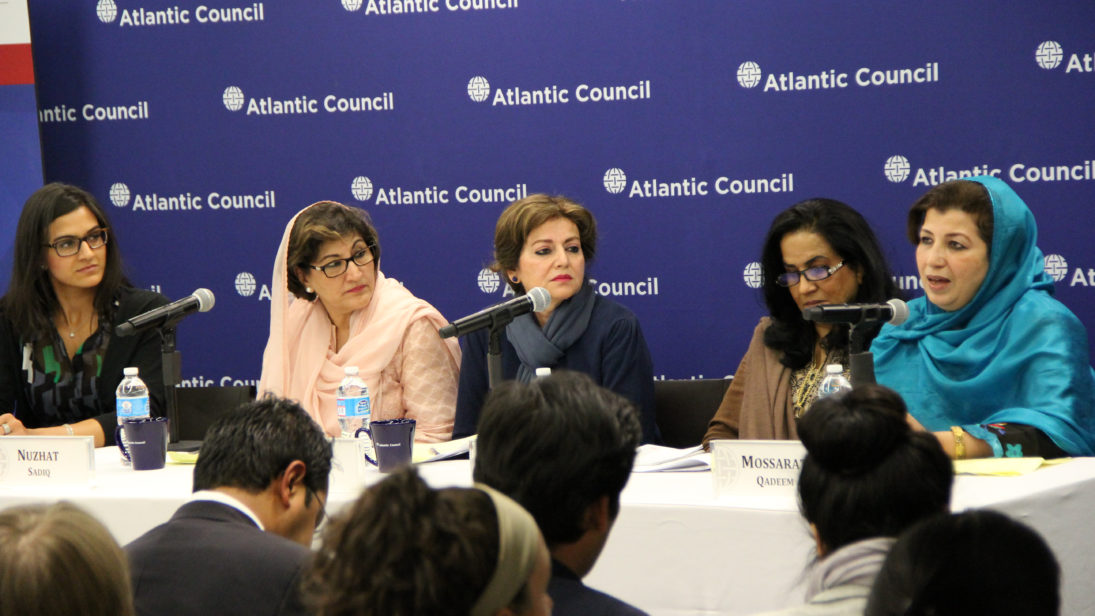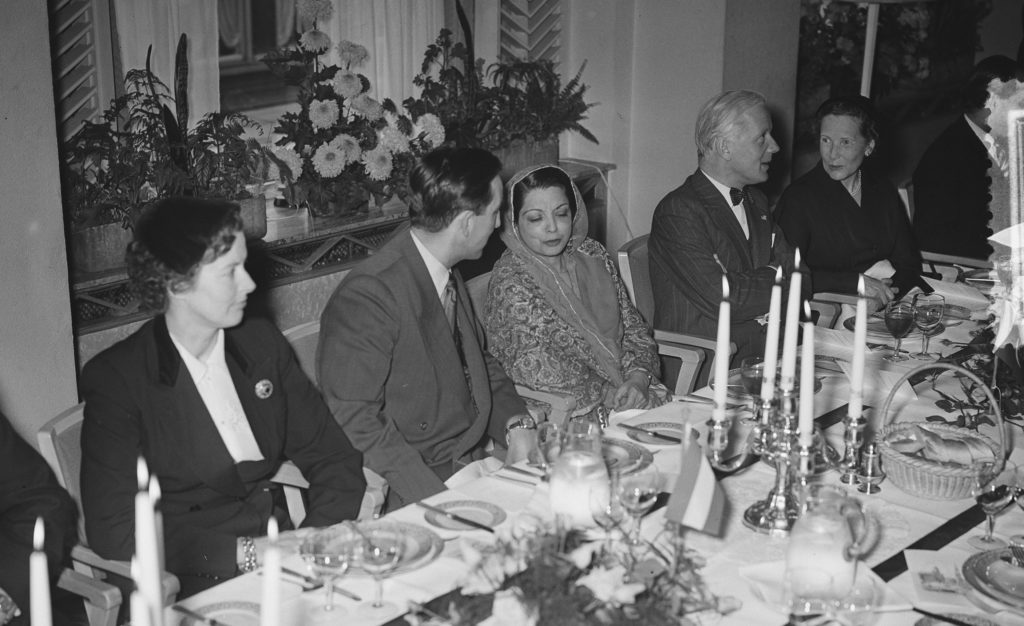
Pakistan has faced many challenges in 2021, domestically this has included the continued COVID-19 pandemic, an influx of Afghan refugees, and violations of ethnic, religious, and gender minority rights. Pakistan, like many other states, relies upon conventional foreign policymaking frameworks which tend to focus on military prowess, hostile power dynamics, and often masculinist conceptions of dominance as a means to address these dilemmas—which has contributed to an environment of insecurity and censorship. Although new to the political lexicon, the Feminist Foreign Policymaking (FFP) framework offers an alternative approach, aiming to provide equality, justice, solidarity, and peace by situating feminism at its core. Countries including Mexico, Canada, Luxembourg, Spain, France, and Sweden have committed to becoming more inclusive after announcing official FFP frameworks, which support better female representation in the political sphere along with a centralized focus on human dignity, equitable growth, climate action, inclusive governance, and peace and security.
Adopting FFP mechanisms would reorient Pakistan’s focus to providing safety for marginalized and vulnerable groups, challenging the status quo, and prioritizing citizenship rights within a transnational political landscape. In light of non-traditional security concerns and undeniable limitations and redundancy of past practices, Pakistan is in dire need of moving towards the intersectional and inclusive conception of foreign policymaking intrinsic to the FFP framework. Although this would represent a marked shift in Pakistan’s foreign policy, it is not unprecedented if one reacquaints themselves with Pakistan’s history.
Historical Precedent and the National Narrative
When it comes to women’s rights and political representation, Pakistan has had a number of notable “firsts” in female foreign policy leadership: the first female Prime Minister, Benazir Bhutto in 1988, who was also the first female leader of the Muslim world, the first female Permanent Representative to the UN, Maleeha Lodhi in 2015, first female Foreign Minister, Hina Rabbani Khar in 2011, first Human Rights Minister, Shireen Mazar in 2018, first female Poverty Alleviation and Social Safety Minister, Sania Nishtar in 2018, and the first female Lieutenant-General, Nigar Johar in 2020, among others. Despite such precedents, the current Pakistani feminist political landscape is not given the institutional platform to produce transformative, sustainable change. Pakistan can do more to build off its several notable female “firsts” through state prioritization of feminist policymaking housed in the legacy of past political feminist interventions.
Adopting FFP mechanisms would reorient Pakistan’s focus to providing safety for marginalized and vulnerable groups, challenging the status quo, and prioritizing citizenship rights within a transnational political landscape.
Throughout the political history of Pakistan, women’s contributions—and perhaps even all forms of feminist collaborations—have been kept at bay. Be it electoral politics or on-the-ground activism, feminist role models have been erased from the national narrative. Pakistani women in civil society throughout the decades, such as the historian Rubina Saigol, human rights activist Sabeen Mahmud, and digital activist and lawyer Nighat Dad, have been systematically pushed to the periphery. Because of this political amnesia, feminist interventions are rejected as alien and feminist foreign policymaking is no exception to this rule. However, Pakistan is no stranger to feminist foreign policymaking through the precedent set by Begum Ra’ana Liaqat Ali Khan’s career as a seasoned diplomat. Known as Pakistan’s original First Lady—a role that, despite holding cultural power, is perceived within the constraints of implied gender norms—her career as a successful diplomat is not common knowledge nor used as a relevant platform to assess the merits of feminist foreign policymaking.
The Pakistani Feminist
Begum Ra’ana’s indomitable role in Pakistan’s soft diplomacy began before her taking on the role of First Lady, by establishing rehabilitation camps for migrant refugees of partition and championing feminist politics throughout the 1940s and 1950s. Begum Ra’ana advocated for women’s active participation during the Pakistan Movement and mobilized many female activists to stage protests and build pressure for an independent Pakistan by directly participating in campaigning strategies. In 1948, she founded the Women’s Voluntary Service, which administered first aid to women, organized food distribution, dealt with health problems, among socially prevalent issues. This then morphed into the All Pakistan Women’s Association (APWA), one of the first independent and voluntary feminist organizations in the country with many feminist leaders as its members, working towards advocating inclusive legislation, including laws on inheritance and marriage, and setting up welfare projects like schools, colleges, and health centers for women. She then established the Pakistan Women National Guard and Pakistan Women’s Naval Reserve after which she was appointed as the first female Brigadier, setting a precedent encouraging the inclusion of women in all political domains
Begum Ra’ana’s initial work foregrounded her diplomatic efforts and paved the way for Pakistani women to occupy space in foreign policy. Along with her husband, Prime Minister Liaquat Ali Khan, the first couple made their first international visit to the United States in May 1950 at the invitation of the American President. They visited the Trumans, state governors, senators, congressmen, and influential personalities like Walt Disney, who were enamoured by her gharara, her confidence, and her eloquence. Her presence and participation were monumental in viewing Pakistan as more than a backward, postcolonial state in the eyes of the secular West, particularly due to her vocal emphasis on “the basic Islamic principles of equality, brotherhood, and social and economic justice.” This provided a roadmap to future cultural ambassadors and attributed political significance to the role of the First Ladies and the First Families, continued by the Sharifs and the Bhutto-Zardaris.

Begum Ra’ana’s successful diplomatic career paved the way for Pakistan’s foreign relations for decades to come. In 1952, she became the second Muslim woman delegate to the UN. While serving as Pakistan’s Ambassador to the Netherlands from 1954 to 1961, Begum Ra’ana became friends with Queen Juliana and tactfully acquired a beautiful heritage property for Pakistan’s ambassador residence in the country, substantiating Pakistan’s presence in Europe for years to come through a simple act of friendship. The “Dynamo in Silk” became Pakistan’s ambassador to Italy from 1965 to 1966, prioritizing academic research and local knowledge production through the development of international alliances by supporting the Italian excavation project started by the Italian Institute of Middle and Far East in the Valley of Swat. During the height of her career, Ayub Khan, the then president of Pakistan, wanted to cajole her into giving his political campaign an endorsement by publicly maligning his opponent Fatima Jinnah, to which Begum, despite not being friends with the latter, declined to do, leading to an abrupt end to her duties as a career diplomat. This example is crucial towards understanding the very principles of feminist solidarity and political ethics. With the advent of the Bhutto government, she then became the first female Governor of Sindh after returning to Pakistan and continued with her feminist activism till her death in 1990. 1
Feminist Foreign Policy in Pakistan Today
One would think that Begum’s monumental success as a career diplomat and feminist role model could have ushered in the principles of feminist politics to the formal framework in Pakistan years ago. However, the country’s constantly changing governments, recurrences of military coups, the initiation of the Global War on Terror, and the decade of dictatorship under President Pervez Musharraf have been a great hindrance to any progressive political interventions. Implementing an FFP has also been challenged by the jarring economic inequality, begrudgingly making space for the tokenization of women from the ruling elite with majority of female politicians either having dynastic links or having to rely on the parliamentary quota system. Due to this hierarchical distribution of power, the efforts of on-ground activists like the Sindhiani Tehreek, Okara Farmers Movement, the Lady Health Workers, and even the Women’s Action Forum—heir to the progress made by APWA—have been historically side-lined.
With the current onset of a more stable democratic government, digital activism, increasing political participation of women from all walks of life, complemented by the presence of diplomatic stalwarts like Saima Saleem, Pakistan’s first visually impaired civil foreign diplomat, Pakistan can reprioritize developing a FFP framework. The legacy of Begum Ra’ana provides a roadmap to the state and civil actors to come together to encourage women’s participation in transnational networks, incentivize women’s presence in political organizations, promote female bureaucrats to more international missions and revitalize its theory on modern diplomacy backed by research and institutional change. This will be especially successful if women currently invested in local political activism and philanthropic projects are provided with the platform to represent Pakistan on international forums therefore reinventing its international image.
While it is convenient to reduce Begum Ra’ana’s achievements to individual accomplishments —as has been the case with many female pioneers in Pakistan— her historical precedent can allow today’s policymakers to introduce systemic change embedded in local political mores.
While it is convenient to reduce Begum Ra’ana’s achievements to individual accomplishments—as has been the case with many female pioneers in Pakistan—her historical precedent can allow today’s policymakers to introduce systemic change embedded in local political mores. Begum’s legacy is a challenge to all those who reject the efficacy of a FFP framework especially in Pakistan, where women’s rights are treated as a footnote and never a priority to ensure political stability. Her success is a testament to the pioneering role women have and must continue to play in both improving Pakistan’s public image and establishing progressive policies in the domestic and foreign spheres. Begum Ra’ana’s life is not just an example of representational politics that should be regurgitated without problematizing her own privilege or the historical context of that era. Her legacy should be cemented as a valuable precedent, an educational prototype of “doing” the hard work of politics while prioritizing feminist ethics and succeeding at it. There is an opportunity to set another leading example in the Global South by institutionalizing systematic change for survivors of militarized security and hierarchical oppression, but will Pakistan take it or turn away from this opportunity without acknowledging its own history?
Editor’s Note: Since Sweden announced a Feminist Foreign Policy in 2014, several other nations have also begun this journey, however the conversation and frameworks are largely rooted in western countries. In this series, run jointly with the Kubernein Initiative, contributors from across the subcontinent discuss what it means to have a “feminist foreign policy,” and how this approach could merge efforts in foreign affairs, regional policy and geopolitics, development and women’s empowerment in South Asia. The series asks to what extent countries in South Asia have incorporated a Feminist Foreign Policy approach, and the ways in which a gender-conscious approach may support security, democracy, and diplomacy on the subcontinent.
***
Click here to read this article in Urdu.
Image 1: Inclusive Security via Flickr